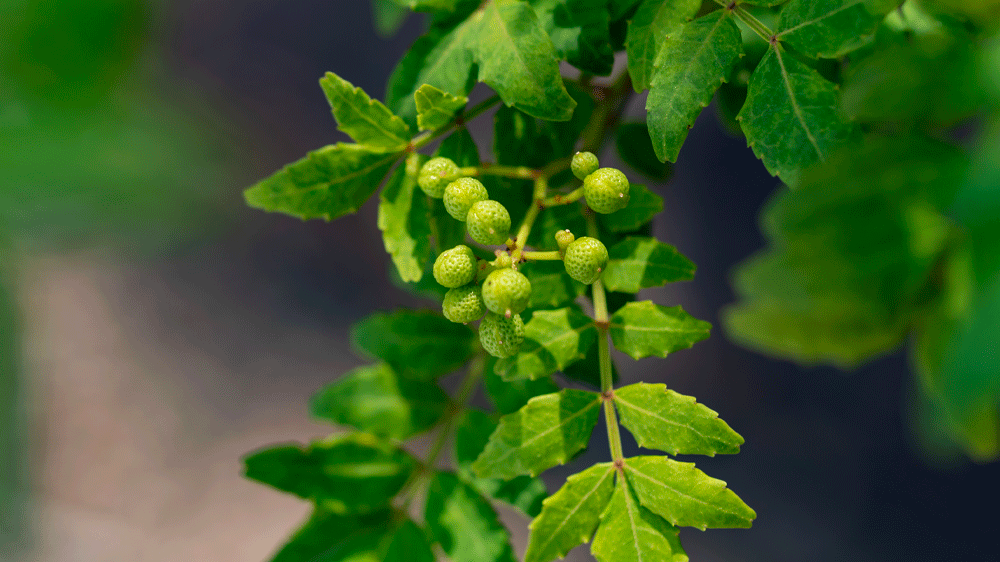Jeju Chophi-L
#japanese pepper #anti-inflammatory #anti-aging

- INCI Name
- Zanthoxylum Piperitum Branch/Leaf Extract
- IECIC Name
- -
- Efficacy
- Anti-aging, Anti-oxidant, Anti-allergy, Anti-inflammation
- Certification
Zanthoxylum piperitum, or synonymously known as Fagara piperita, is a deciduous tree grown in East Asia, especially Korea, Japan, and China. Commonly known as Japanese pepper, its fruit is widely used as a spice in Japanese cuisine to suppress unpleasant fishy and meaty odors and to produce a fresh flavor. Fruit peels and leaves are used in Japan to preserve foods. In Korea, Z. piperitum has been used as a traditional medicine for the treatment of vomiting, diarrhea, and abdominal pain.
The fruits and leaves of Z. piperitum are reported to contain aliphatic acid amides, terpenoids, flavonoids, alkaloids, and other phenolic compounds. A glycoprotein isolated from Z. piperitum showed anti-inflammatory and anti-allergic properties. The fruits and leaves of Z. piperitum showed anti-oxidant and hepatoprotective effects.
- Recommended Product
-
 #4 green fruits #skin exfoliation #skin barrier Greenth
#4 green fruits #skin exfoliation #skin barrier GreenthCarica Papaya (Papaya) Fruit Extract, Pyrus Malus (Apple) Fruit Extract, Prunus Mume Fruit Extract, Vitis Vinifera (Grape) Fruit Extract
-
 #4 TKM plants #hair care #scalp care BotaCair
#4 TKM plants #hair care #scalp care BotaCairSophora Flavescens Root Extract, Scutellaria Baicalensis Root Extract, Coptis Japonica Root Extract, Morus Alba Bark Extract
-
 #narcisture #anti-inflammatory #skin moisturizing Narcisture
#narcisture #anti-inflammatory #skin moisturizing NarcistureNarcissus Tazetta Bulb Extract
-
 #lotus leaf #anti-pollution #anti-senescence Leafresh
#lotus leaf #anti-pollution #anti-senescence LeafreshNelumbo Nucifera Leaf Extract
- Product Inquiry









